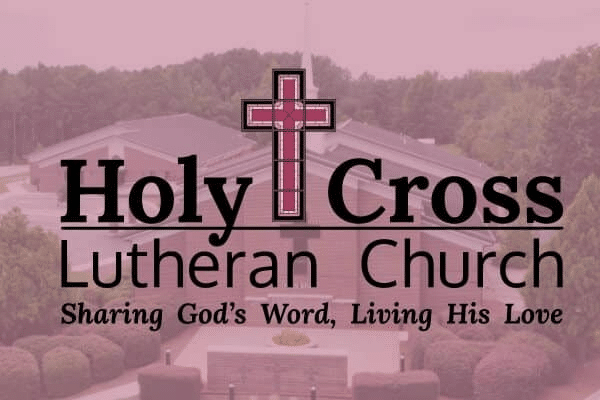
Hebrews 11:17-31, 12:1-3
August 17, 2025
We don’t seem to take much “on faith” anymore, especially from people. When politicians, actors, or professional athletes are accused of wrongdoing and immediately deny the accusations, their public denials are often quickly greeted with suspicion and doubt. Network media, government warnings, and even recommendations from people like doctors, lawyers, and financial advisors are all questioned these days or met with a sense of skepticism.
What’s interesting, though, is that we do seem to place our faith in our electronics. It’s almost like we have more faith in artificial intelligence than human intelligence. For example, when we see a symbol like this on a website, we easily input some of our most private information – personal, financial, medical – without question and we trust that it is safely stored away. We hit “send” on our computers and cell phones secure in our faith that our message or order will go to its appointed destination without being intercepted or seen by the wrong people. We trust our travels in the car to a GPS screen and a computer-generated voice that tells us where to go.
But what would you do today if your GPS instructed you to drive your car around the church seven times – meaning down Veterans Parkway, then onto Interstate 40 West, then on to Interstate 42/Clayton bypass at Exit 309, and then back up here to Veterans Parkway? Imagine doing that 7 times while honking your horn all along the way in order to reach your desired destination. Would you have faith to follow those directions? Probably not, but in our second lesson for today from Hebrews it is that degree of faith that the author holds up as part of what he calls “the great cloud of witnesses” who have gone before us. For example, at Jericho, in the Old Testament, Joshua received some rather bizarre instructions from God on how the walls of that city, which were made of stone and stood about 45 feet tall, were going to come down. God told the people that they were to march around the city walls once a day for 6 days. On the 7th day
they were to march around the city walls 7 times while blowing their horns, and after the 7th time around they were all to then let out one loud shout, and the walls would collapse. That’s not exactly a great military strategy for how to attack a city, but these Israelite people put their faith in God and followed His strange instructions, and the walls came down.
God wants us to have that kind of faith in Him and with that kind of faith, God can do some amazing things through us. However, having faith does not mean that life will be easy for us. Faith in God does not mean that all of your worries will go away, or that your pain and suffering will disappear, or that nothing bad will ever happen to you. It is very tempting for people to think that if you become a Christian, if you have faith in God, your life will get easier. But if you were to ask the Hebrew Christians, who were the recipients of this second lesson for today about Christianity, I think they would say something quite different. “Easy” would probably be the last thing they would say about Christianity.
If we were to look at the whole book of Hebrews, we would notice that many Christians in those days were often faced with persecution, hostility, and torture. Being a Christian certainly did not make their lives easier, in fact it probably made their lives more difficult. Now we don’t face the same kind of persecution or struggles that the early Hebrew Christians faced, but I don’t think any of us would claim that our lives are easy as a result of our faith in Jesus. Maybe this is why instead of describing the Christian life as a “walk in the park,” the author describes it as a “race,” and not just a short sprint, but a long marathon type race.
I don’t know if any of you have ever run a marathon, but I have done it once in my life, 35 years ago, and I learned that running a 26.2-mile marathon involves pain. When the race begins, everything seems great – you’re feeling strong and along the way there are stations where people are handing out small bottles of water or fruit to keep you going. But all of a sudden you get to about the 18-mile mark and the muscles in your legs are screaming in pain. At this point the race
is a completely different experience. You just want to get it over with and you even wonder if you’re going to finish.
Hebrews 12:1 says, “Therefore, since we are surrounded by so great a cloud of witnesses, let us also lay aside every weight and sin which clings so closely, and let us run with endurance the race that is set before us.” When the writer to the Hebrews refers to the Christian life as a race, he says, like a marathon, that it must be run with endurance, which means you must prepare. And the first thing he says we must do is to lay aside every weight and sin which clings so closely. In other words, in order run this race of life, we have to stop sinning. But how do we do that?
When I was training for a marathon, I learned there were certain foods I could not eat, because they would hinder my efforts to be prepared for the race and could prevent me from finishing. Well, that is what sin is like. Our sin hinders us from being able to run the race, but the problem is sin can be very attractive. Maybe there is something you do that you know is sinful, but you do it anyway because it makes you feel good. Maybe it’s a sin that you have done so often and for so long, that you don’t even feel guilty anymore. But if you were to think about it, you know that it’s wrong and you know it keeps you from fixing your eyes on Jesus.
So often when we face temptations and problems in our lives, human nature is to try to fix it on our own. Our culture today promotes the power of the individual. I love do-it-yourself videos on YouTube, because they encourage me that I can actually fix something by myself. As a result, I have made all kinds of repairs in my house thanks to those YouTube videos, and I’m very proud that I did those things on my own. But no matter how hard we try to run this race of life by ourselves, we fail. Our sin weighs us down and even kills us, because we cannot get rid of it on our own. The book of Romans says that the wages of sin is death, so if we are dead in our sins, not only can we not run the race of life with endurance, we can’t even get started.
But there is hope for us, and this hope is found in the person and work of Jesus. Our text reminds us that Jesus endured the cross for our sins. Since we could not run the race of life without failing, meaning without sinning, Jesus ran it for us. He came down from heaven to become one of us and He endured a race that led to an agonizing death on a cross for our sins, sins He had never committed, but He did it for the joy that was set before Him. Hebrews 12:2 says, “…who for the joy that was set before him endured the cross, despising the shame, and is seated at the right hand of the throne of God.” What exactly was this “joy?” It was knowing that through His death He would be taking our sin away, so that we could live with Him forever.
But since the Christian life is a marathon race, this means that there will be times when we hit that 18-mile mark and we will feel like giving up, because of failure or frustration. However, even though we may have those moments, our God will never give up on us. He will always give us the strength, love, and grace we need to endure in this life. In fact, in this text, we are given a list of faithful people – the “great cloud of witnesses,” who were far from perfect, but who endured and succeeded in the Christian race because of their faith. In addition to the people at Jericho, we see names like Abraham, Jacob, and Moses – all who did some great things through their faith in God, but who were actually just like us, sinners who had failures, and yet by God’s grace were forgiven and endured in their faith to the end.
A life of faith is not a perfectly lived life, it is not an easy life, it is a marathon race which requires patience and endurance. But we can run that race, because God is always with us, He will carry us – especially when we feel like we are at those 18-mile markers and can’t go on, and He will enable us to complete that race when He calls us to live with Him in our heavenly home. My prayer is that you will boldly run that race that is set before you, remembering the faith of those who have gone before you, while keeping your faith in Jesus at all times.


